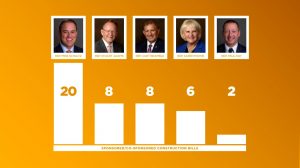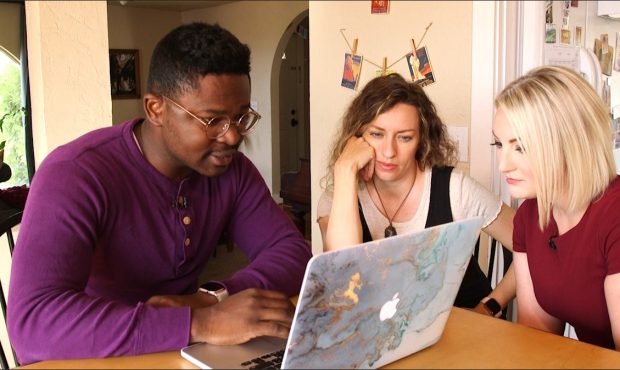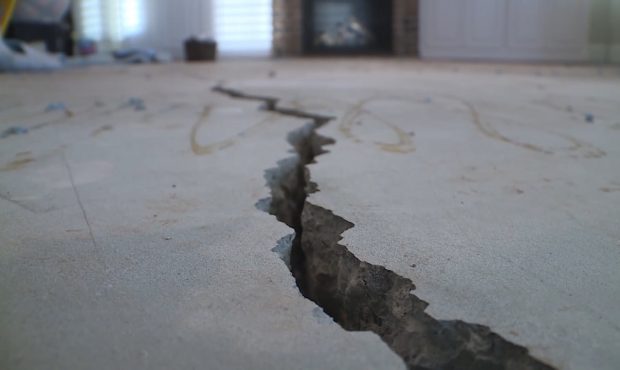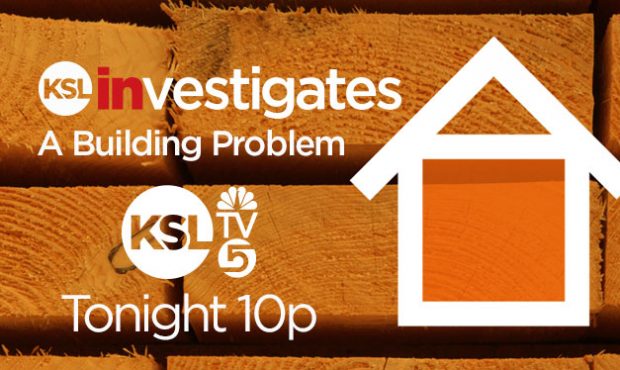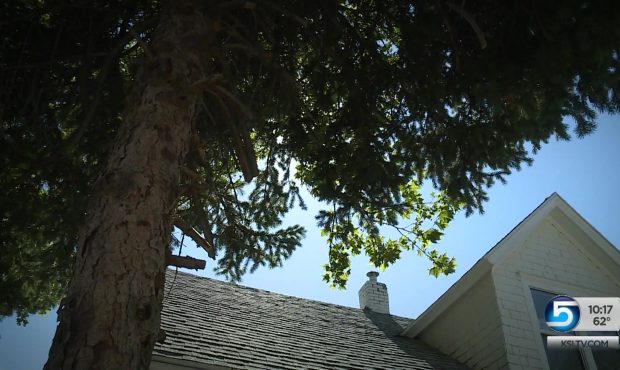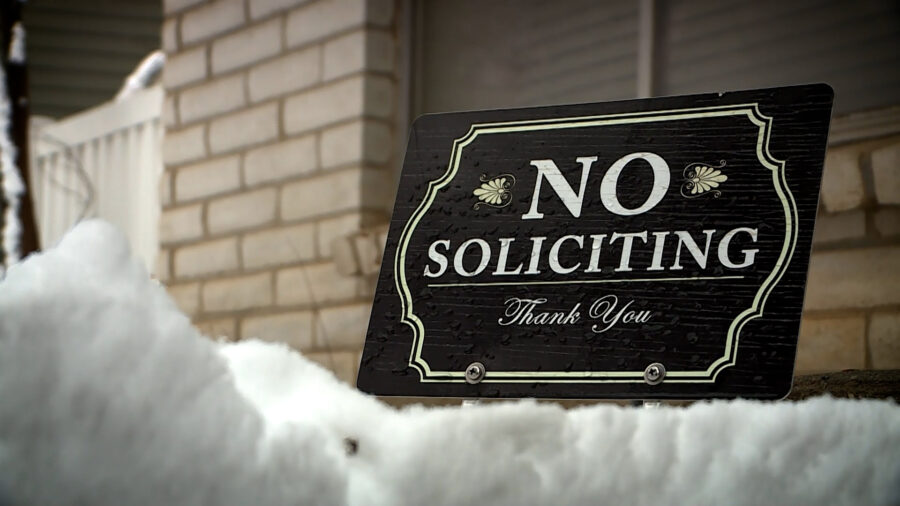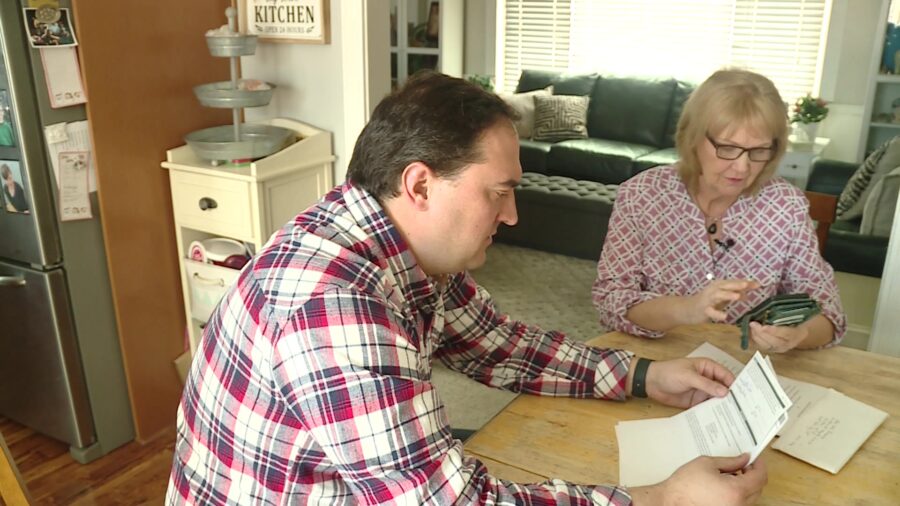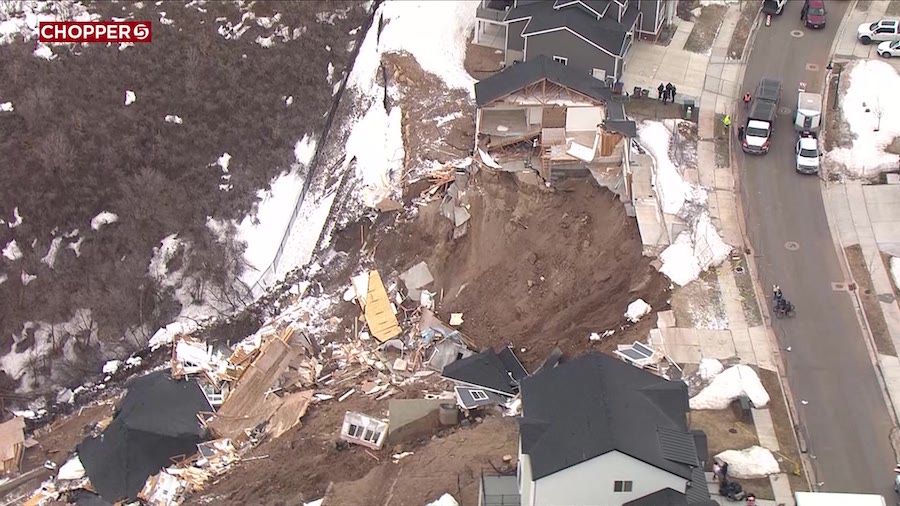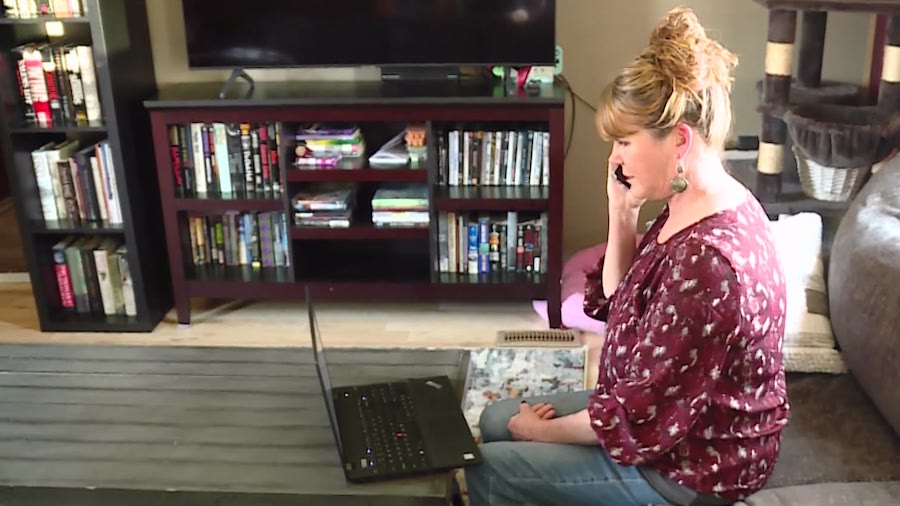KSL INVESTIGATES
New Construction Laws, Campaign Contributions, Potential Conflicts Of Interest
Nov 12, 2019, 10:42 PM | Updated: Nov 14, 2019, 3:44 pm
EDITOR’S NOTE: After dozens of complaints from viewers about construction defects in Utah, the KSL Investigators launched an in-depth look at the construction industry. This is part of a series on A Building Problem in our state.
SALT LAKE CITY, Utah — Utah is putting up homes at three times the national average. Combine that with major construction projects like the new airport and finding a good contractor for your home can be difficult.
The Utah State Legislature has made a priority of easing licensing regulations in the last few years for several professions, including the construction industry.
Several of the people authoring those laws work in construction and development. It can be a benefit of a citizen legislature, as each lawmaker brings their expertise to Utah’s laws. The KSL Investigators analyzed those laws to see if lawmakers are crossing lines into serving themselves at the expense of consumers.
49 Bills On Construction & Development In Four Years
The KSL Investigators searched bills presented from 2016 through the 2019 General Session to determine how many changed how construction and development industries operate in Utah. Our analysis found 49 bills: all but 14 have become Utah law. We read the bills and listened to lawmaker presentations on the floor of the legislature to determine whether the bills helped consumers or the construction and development trades.
Construction & Development Bills 2016-2019
We found 46% of bills helped consumers. The bulk of the pro-consumer bills had to do with updated building codes, fire code, and safety. Sen. Karen Mayne, D-Salt Lake County, tended to be the champion of these bills. It’s no surprise workplace safety is her priority, as she has spent decades working with labor unions. She currently serves as President of the Utah AFL/CIO, the largest federation of labor unions in the country.
“I have many pieces of legislation that’s for protection in the workplace,” Mayne said. “That’s really core to me.”
Thirty-one percent of passed bills tended to be in favor of developers and construction trades. These bills made it easier for contractors to get licensed, penalties were decreased if contractors made mistakes, and the approval process of construction plans were streamlined.
Legislation penned in 2017 by Sen. Curtis Bramble, R-Utah County, made it legal for developers to build without city plan approval, so long as the developer’s plans were certified by an architect or engineer, and the city or town had not completed an initial plan review within 14 to 21 days, depending on the type of residence being constructed. Senate Bill 241 said a town has 14 business days after a plan is submitted on a one-to-two family dwelling or townhome to complete that review and 21 business days for larger units.
The KSL Investigators asked Bramble if pushing plans through city processes more quickly could be to the detriment of homeowners.
“We have tort laws that address that. If you’re talking about protecting the homeowner, there’s a whole host of other laws that will protect the homeowner from slipshod work from a professional,” he said.
Bramble indicated this is common for every profession when there are mistakes or malpractice.
The remaining 23% of new laws fell into a gray area that could help both consumers and developers, or not really impact either. The laws deal with things like land use and how certain funds were spent.
Builders & Developers Working in the Utah Legislature
In some cases, contractors and developers are the ones creating these laws. According to Senate and House conflict of interest disclosures, we found of the 104 members serving in the Utah Legislature, 31 had ties to the construction, real estate, or development sectors. By removing any lawmakers from the list who simply had a rental home or two, or who were not directly or significantly impacted by these trades, we found eight legislators who receive paychecks directly from some aspect of the construction industry.
Those legislators were:
- Rep. Brad Wilson, R-Davis County: CEO of Destination Homes and owner of multiple development companies;
- Rep. Paul Ray, R-Davis County: CEO of the Northern Wasatch Home Builders Association;
- Senate President J. Stuart Adams, R-Davis County: Owner of multiple development and construction companies;
- Rep. Calvin Musselman, R-Weber County: Realtor and president of Eagle Land Properties;
- Sen. Dan McCay, R-Salt Lake County: VP of land & real estate portfolio management with Suburban Land Reserve;
- Rep. Keven Stratton, R-Utah County: Involved in a few real estate and construction companies;
- Rep. Kay Christofferson, R-Utah County: Civil engineer and manager of multiple rental properties;
- Rep. Mike Schultz, R-Weber County: Owner of Castle Creek Homes.
All but two of these legislators have sponsored or co-sponsored construction-related legislation in the last four years: with Rep. Stratton and Rep. Musselman as the two exceptions. Adams and Bramble have sponsored or co-sponsored 8 bills each, while Schultz has signed on to 20 bills.
Schultz sponsored more bills than any other lawmaker in the construction realm. After reviewing his campaign contributions since his election in 2015, we found $25,350 of his $154,745.68 came from construction, real estate, or development industries. That works out to 16.39%. When asked if he thought there’s a conflict of interest in accepting money from the industry, Schultz said, “I make absolutely zero decisions based on who contributes to my campaign.”
He told KSL Investigators he donates much of his campaign contributions to other political campaigns and charitable causes. In 2018, the most recent financial disclosure, Schultz spent $38,649 toward other political campaigns, and $2,000 was given to city projects like Hooper City Tomato Days. His political contributions in 2018 totaled $62,815.93.
Conflict of Interest? Or Beneficial Expertise?
Every lawmaker in the Utah Legislature is required to fill out a conflict of interest disclosure annually. This reveals their sources of income and any boards on which they serve.
In Utah, ethics rules allow lawmakers to run or vote on any bill that may personally benefit them, so long as they disclose the conflict in the formal disclosure form, or on the floor before a vote on the bill in question.
The Legislative Ethics Commission oversees complaints and investigations into lawmakers with possible conflict of interest violations. In the past seven years, only one complaint has been filed, and no action was taken on the complaint as it was “non-compliant” with ethics complaint rules.
Most legislators we spoke with praised the benefits of a citizen legislature, including Senate President Stuart Adams.
“Utah has a citizen legislature, which provides for more robust and informed debate with people who have expertise in various fields. It has served the state well in the past and will continue to in the future. Transparency is vital, which is why legislators are required to disclose professional and financial connections that are posted online for everyone to view,” Adams wrote in an email.
But, at what point does self-interest ripen into self-benefit?
When lawmakers changed general contractor requirements, one of the new rules required those seeking to be licensed general contractors to take a 25-hour course, its exam, a five-hour business and law course and its subsequent exam. The law approved three companies to provide these courses and exams, one of which is the Utah Home Builders Association.
Rep. Ray is the CEO of the Northern Wasatch Home Builders Association, a local chapter of the Utah HBA. When asked if, as a lawmaker, he had any influence in the state choosing which organizations would gain the state’s approval, he said, “I didn’t write the bill. I voted on the bill, but it’s the state HBA that’s over the contractor class, not the local HBAs.”
According to filed financial statements, Ray has brought in $170,248.63 in political contributions since his election in 2014.
Of that, $21,715, or 12.75%, came from construction, real estate, and development industries. However, Ray has only sponsored or co-sponsored two pieces of legislation related to his profession in the last four years, both we deemed helped construction trades. They were Construction Trades Licensing Penalty Periods Amendments, and Construction & Fire Code Amendments, both from the 2017 General Session.
We asked Ray if his position affects his legislation.
“I’m not a builder,” he said. “My focus has been on those areas where I have more expertise in than the building industry. So yeah, not a priority to me. There’s people that are much better qualified to understand the industry better than I am.”
“A balance that has to be struck”
Bill Perry and his family have been building homes in Utah for decades, under Perry Homes. He said he’s seeing a huge demand for affordable housing in Utah, but there are barriers: lack of affordability in construction, massive construction projects taking away laborers, and an overall labor shortage.
“Frankly, the builders and developers in the state have not been able to deliver enough units to satisfy that demand,” Perry said.
Perry said when it comes to slashing licensing requirements for construction trades, regulation must keep in mind accessibility to entering those professions.
“I think there’s a balance that has to be struck between, you know, how hard it is to get a license, and whether or not we’re going to keep people out of the workforce in a particular area, when frankly, right now, the construction industry lacks laborers,” he said. “There just simply are not enough for the demand that’s out there.”
Sean Gores is a general contractor and owner of Gores Construction. Originally based in Oregon, Gores arrived in Utah solely to fix problems created by contractors in our state. His specialty is water intrusion problems and he said he doesn’t believe Utah laws support consumers.
“The biggest investment homeowners make is what? Buying a home — and in Utah, they’re getting screwed,” he said.
Gores believes the legislature’s attempts to roll back regulation mean bigger problems for consumers, particularly when it comes to making sure contractors fix their mistakes.
“If the homeowners bought from a developer or a contractor, and they don’t have specific language in the contract that states they must build up for code, they don’t have a lawsuit,” said Gores.
To review your lawmakers’ financial campaign contributions, check here.
KSL Investigates: A Building Problem Coverage:
- KSL Investigates: State Regulator Website ‘Like Early 2000s’ For Access To Information, Lacks Full Discipline Records
- Utah Law Loosens Licensing Requirements for General Contractors
- Number Of Inspectors Isn’t Keeping Up With Home Construction In Utah
- A Building Problem: Home Inspectors Aren’t Licensed in Utah
A Building Problem: Utah Law Loosens Licensing Requirements For General Contractors



